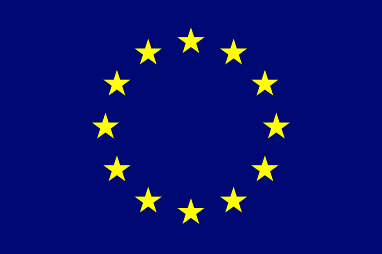Publications
Throughout the year, VOICE produces and disseminates key documents reflecting on humanitarian aid issues at the EU level and from an NGO perspective. They are addressed to decision-makers within the European institutions, at the National level, to NGO networks and other stakeholders of the humanitarian community, as well as to the VOICE members. Some documents are produced by the VOICE Secretariat with the support of VOICE members while others are publications from members and other key stakeholders in the humanitarian sector.
Please note that members-only documents will not be visible unless you are logged in.
-
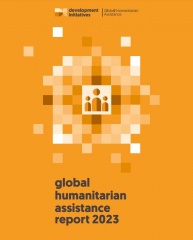
Global Humanitarian Assistance Report 2023 - Development Initiatives
20 June 2023The Global Humanitarian Assistance Report 2023 assesses the international financing response to crisis. Development Initiatives finds that more needs went unmet in 2022 than ever before. -
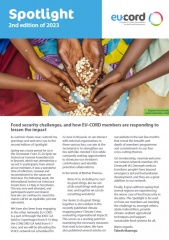
Spotlight Food Security - EU-CORD
20 June 2023Members' publicationsThis edition of the Spotlight of EU-CORD focuses on the current food security challenges and how EU-CORD members respond to lessen the impact. -
Building an enabling environment for local actors in humanitarian response: the crucial role of donors – EU CORD
15 June 2023VOICE out loudIn this article, EU CORD delves into the donor’s role in enabling local actors in humanitarian response, which will eventually benefit the whole humanitarian system and, ultimately, people in need. -
Recognising Resilience women's leadership in Northwest Syria's earthquake response and beyond
14 June 2023Members' publicationsThis report provides a comprehensive analysis of women’s leadership in Northwest Syria after the earthquake that occurred on February 6, 2023. Though the epicentre was located in Southwestern Turkiye, the earthquake caused widespread damage in both that region and Northern Syria. It also explores the broader implications of their leadership for the ongoing Syrian peace processes and its broader implications for Syrian peace processes. It highlights the pivotal role played by women in the response effort and explores their potential to shape equitable, inclusive and sustainable approaches to post-earthquake reconstruction and postconflict recovery across Syria more broadly. -

Broke or broken? A necessary discussion about the humanitarian funding gap- Egmont Institute Briefing
14 June 2023This Egmont Brief proposes to further explore the main options currently proposed to fill the humanitarian aid funding gap: budgetary targets, global pooled funds, and a better engagement with the private sector. It concludes by suggesting a number of actionable items that would allow the European Union to mobilize a wider international financing base. -
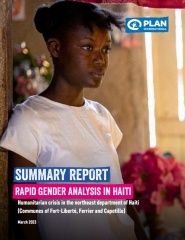
Gender in Emergencies: Results of a Multi-sectoral Rapid Gender Analysis in Haiti - Plan International
14 June 2023Members' publicationsThis rapid gender analysis was carried out by Plan International in the communes of Fort-Liberté, Ferrier and Capotille to understand the impact of the multi-sector emergency, especially food insecurity, on girls and young women in the northeast department of Haiti. -
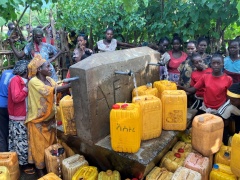
Localisation: where are we at and how did we get here? – Christian Aid
10 June 2023VOICE out loudIn this article, Christian Aid delves into the significant efforts from the humanitarian community focused on channelling more power to local actors and the challenges ahead on the road to localisation. -
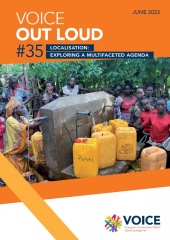
VOICE out loud 35 - Localisation: Exploring a multifaceted agenda
09 June 2023VOICE out loudThe magazine's new edition examines how the humanitarian system, including INGOs, local and national actors, and donors, can ensure equitable partnerships and participation to keep moving the localisation agenda forward. At the same time, some VOICE members also explore several challenges ahead such as the need for broader risk sharing or the importance of mutual learning between local and international organisations, among others. -
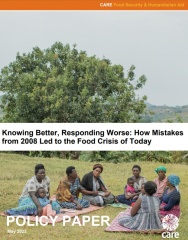
Knowing Better, Responding Worse: How Mistakes from 2008 Led to the Food Crisis of Today - CARE
09 June 2023Members' publicationsA study released by CARE reported that 112.2 million more people around the world were driven to hunger after 2020, compared to the previous major global food crisis (2008-2009). -
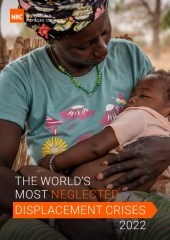
The world's most neglected displacement crises in 2022 - NRC
01 June 2023Members' publicationsThis report by NRC highlights the ten most neglected displacement crises in the world. The purpose is to focus on the plight of people whose suffering rarely makes international headlines, who receive little or no assistance, and who never become the centre of attention for international diplomacy efforts. -
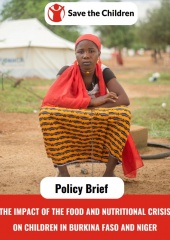
The impact of food and nutritional crisis on children in Burkina Faso and Niger - Save the Children
01 June 2023Members' publicationsThe report by Save the Children is based on a survey of 630 people in the most hunger-affected areas of Niger and Burkina Faso in West Africa as the world faces its most severe food crisis this century. -

Déclaration : les réflexions du réseau VOICE après le Forum humanitaire européen 2023 - Défis Humanitaires (FR)
31 May 2023This publication by Défis Humanitaires features the VOICE Reflections after the European Humanitarian Forum 2023, highlighting 3 priority areas. -
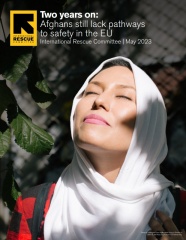
Two years on: Afghans still lack pathways to safety in the EU - IRC
31 May 2023Members' publicationsThe International Rescue Committee’s (IRC) new report calls for renewed European commitments to support Afghans at risk and an urgent expansion of pathways to safety in the EU. -
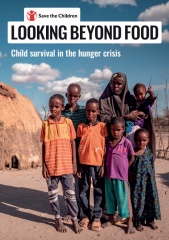
Looking Beyond Food: Child survival in the hunger crisis - Save the Children
26 May 2023Members' publicationsIn this report, Save the Children presents three recommendations to ensure children survive the hunger crisis: scaling up early detection and treatment for acute malnutrition; protecting, promoting, and supporting infant and young child feeding; and investing in community and primary healthcare. -
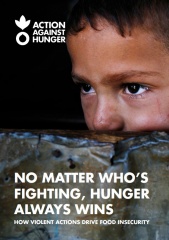
No Matter Who’s Fighting, Hunger Always Wins - Action Against Hunger
25 May 2023Members' publicationsThis report aims to support greater understanding of how conflict and hunger intersect and exactly why conflict fuels heightened, sometimes catastrophic, food insecurity. -
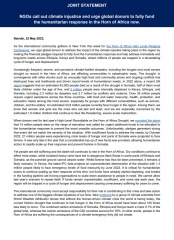
Joint statement urging global donors to fully fund the humanitarian response in the Horn of Africa
24 May 2023Several NGOs, among which are several VOICE members, urge global donors to address the impact of the climate injustice taking place in the Horn of Africa by making the financial pledges required to fully fund the humanitarian response and help address immediate and long-term needs across the region. -
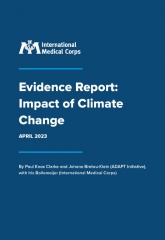
Evidence report: Impact of climate change - International Medical Corps
23 May 2023Members' publicationsThis document outlines the key impacts that climate change is likely to have on the four areas of the humanitarian response of International Medical Corps: water and sanitation; health; nutrition and food security; and livelihoods. -
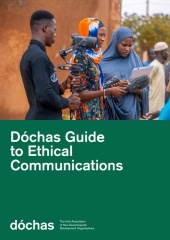
Dóchas Guide to Ethical Communications 2023
22 May 2023The Dóchas Guide to Ethical Communications is a resource for international humanitarian and development non-governmental organisations (NGOs) when designing and implementing their communications. -
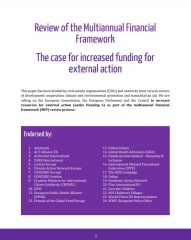
Review of the Multiannual Financial Framework (MFF) - The case for increased funding for external action
22 May 2023This paper, drafted by civil society organisations (CSOs) and networks from various sectors of development cooperation, climate and environmental protection and humanitarian aid, calls on the EU institutions to increase resources for external action (under Heading 6) as part of the multiannual financial framework (MFF) review process. -
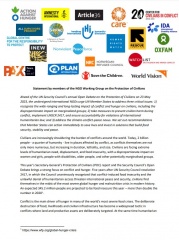
Statement by members of the NGO Working Group on the Protection of Civilians
19 May 2023Joint statement signed by several of our members calling for better protection of civilians, the recognition of the impact of conflict and hunger on civilians, and the implementation of the Nexus, among other issues. -
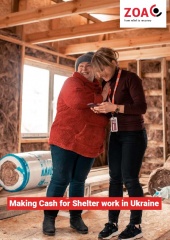
Making Cash for Shelter work in Ukraine - ZOA
12 May 2023Members' publicationsThis best practice paper highlights ZOA's unique Cash-for-Shelter approach and its implementation in Ukraine, allowing others to learn from it. -
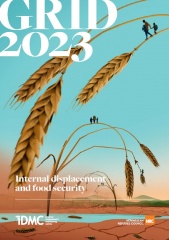
2023 Global Report on Internal Displacement (GRID) - IDMC
11 May 2023This year's edition of the GRID includes a special focus on the complex relationships between disasters, conflict and violence, food security and internal displacement. -
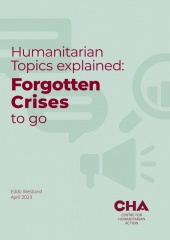
Humanitarian topics explained: forgotten crises - CHA
11 May 2023This paper introduces the topic of "forgotten crises". It highlights definitions of and criteria for forgotten crises and related funding procedures of various organisations, compares four recent lists of forgotten crises and closes with a reflection on the discussion around the term. -
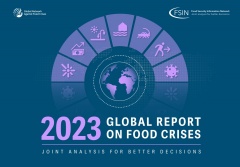
Global Report on Food Crises (GRFC) 2023
04 May 2023The Global Report on Food Crises (GRFC) 2023 is the result of a collaborative effort among 16 partners to achieve a consensus-based assessment of acute food insecurity in GRFC countries. The report aims to inform humanitarian and development action by providing independent and consensus-based evidence and analysis. -
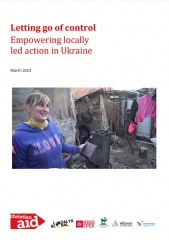
Letting go of control: Empowering locally led action in Ukraine - Christian Aid
02 May 2023Members' publicationsThe paper by Christian Aid argues that the international system needs a mindset shift as it needs to let go of power and put money and accountability in the hands of local actors.

